Montessori education has been surrounded by misconceptions that we set out to disprove!
As a parent and cofounder of Figgy deeply invested in child growth + development, I've seen the parallels between Montessori principles and the values many modern parents and educators hold dear to their hearts.
Let's address and debunk the top 12 misconceptions about Montessori education.
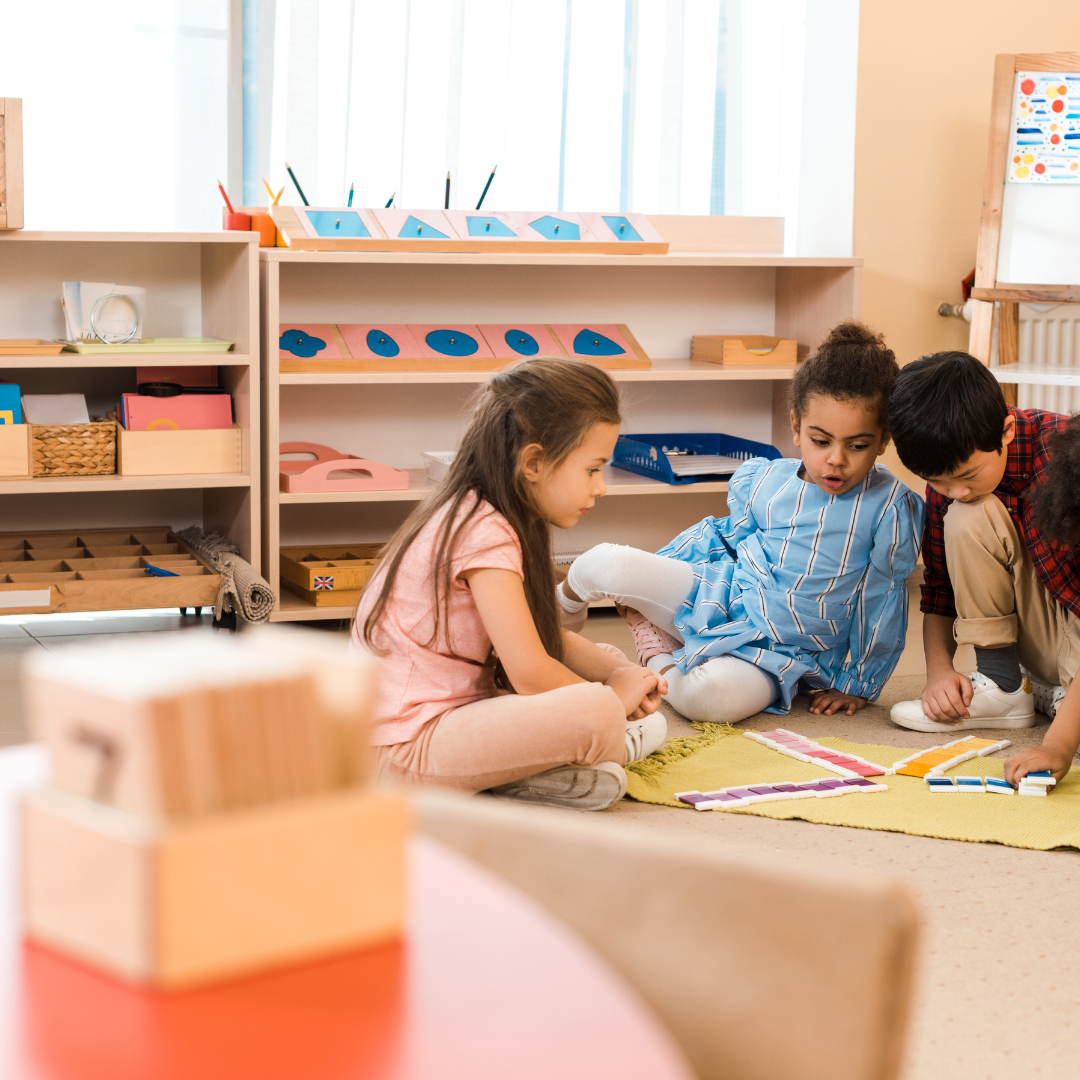
Myth #1: Montessori Means Chaos
Structured Freedom: Contrary to the belief that Montessori classrooms are all over the place, they are actually carefully designed environments that encourage self-directed learning within clear, established boundaries.
This approach fosters an organized but flexible learning space where children can explore and grow.
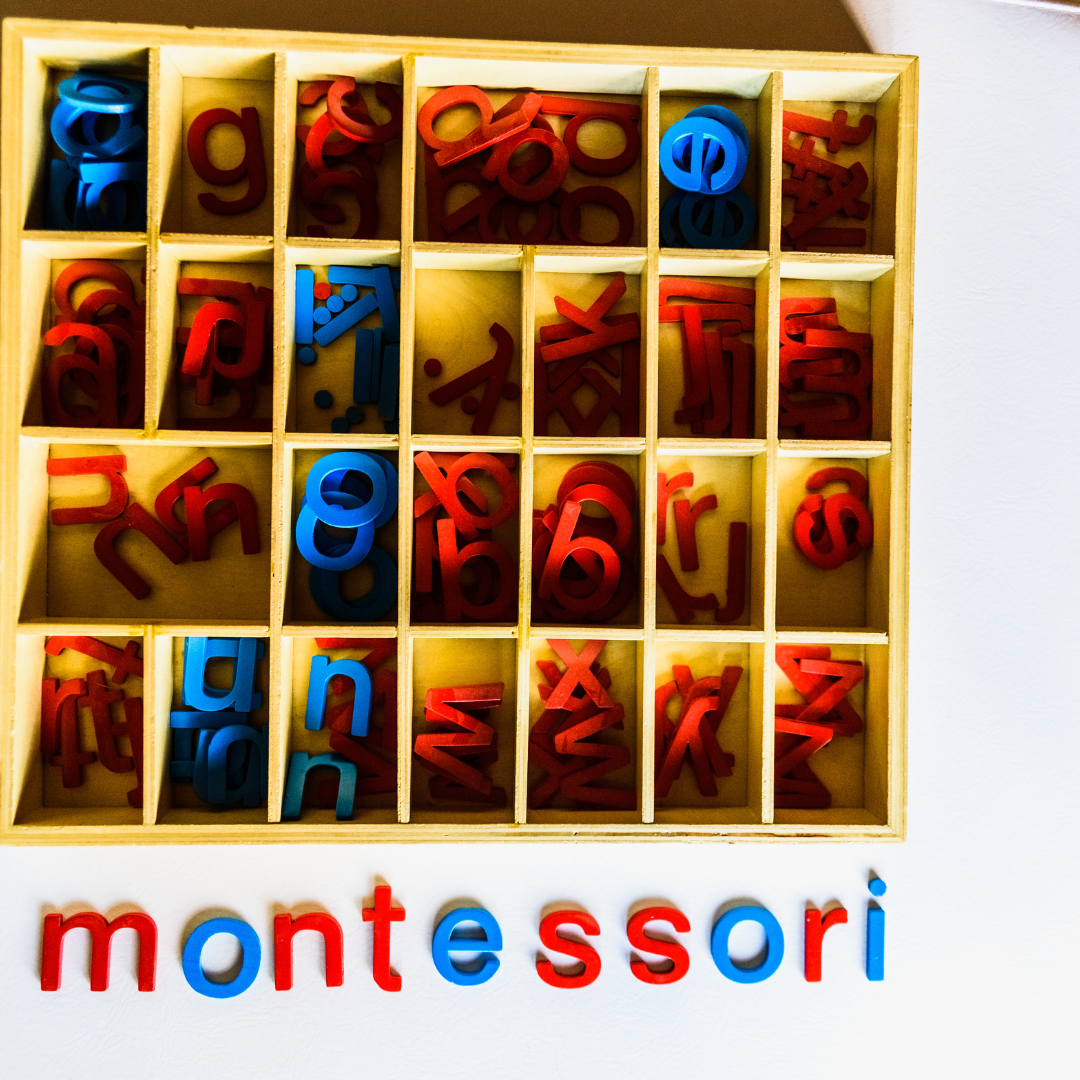
Myth #2: Overly Strict Structure
Harmonious Structure: While Montessori education does have structure, it's not about rigid control. Instead, it offers a balance, allowing children the freedom to choose their activities, which promotes independence and self-discipline.
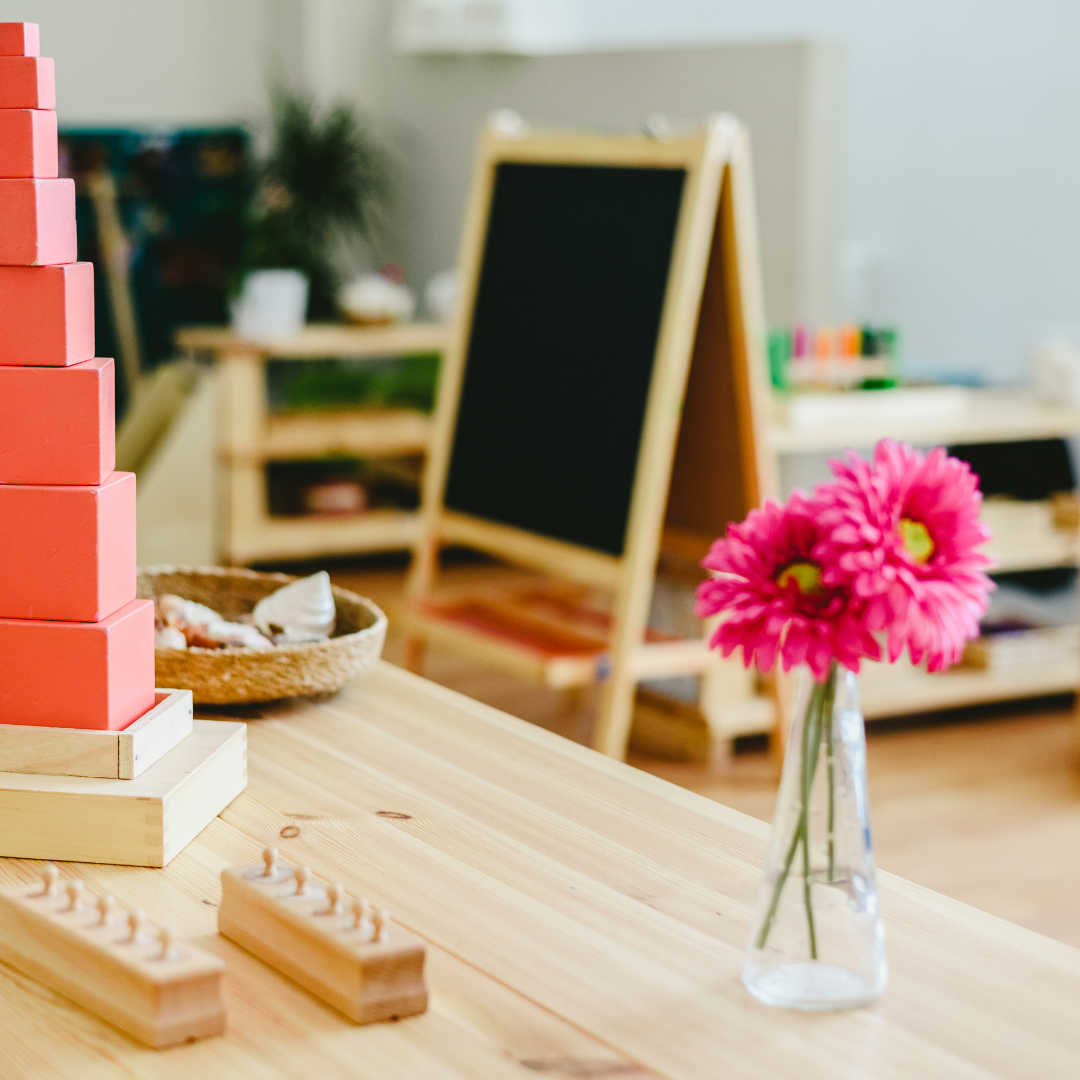
Myth #3: Ignoring Academic Skills
Integrated Learning: Montessori education places significant emphasis on academics, incorporating reading, writing, math, and science into everyday activities. This method ensures that learning is both engaging and relevant. Integrated learning helps kids foster a love of discovery.
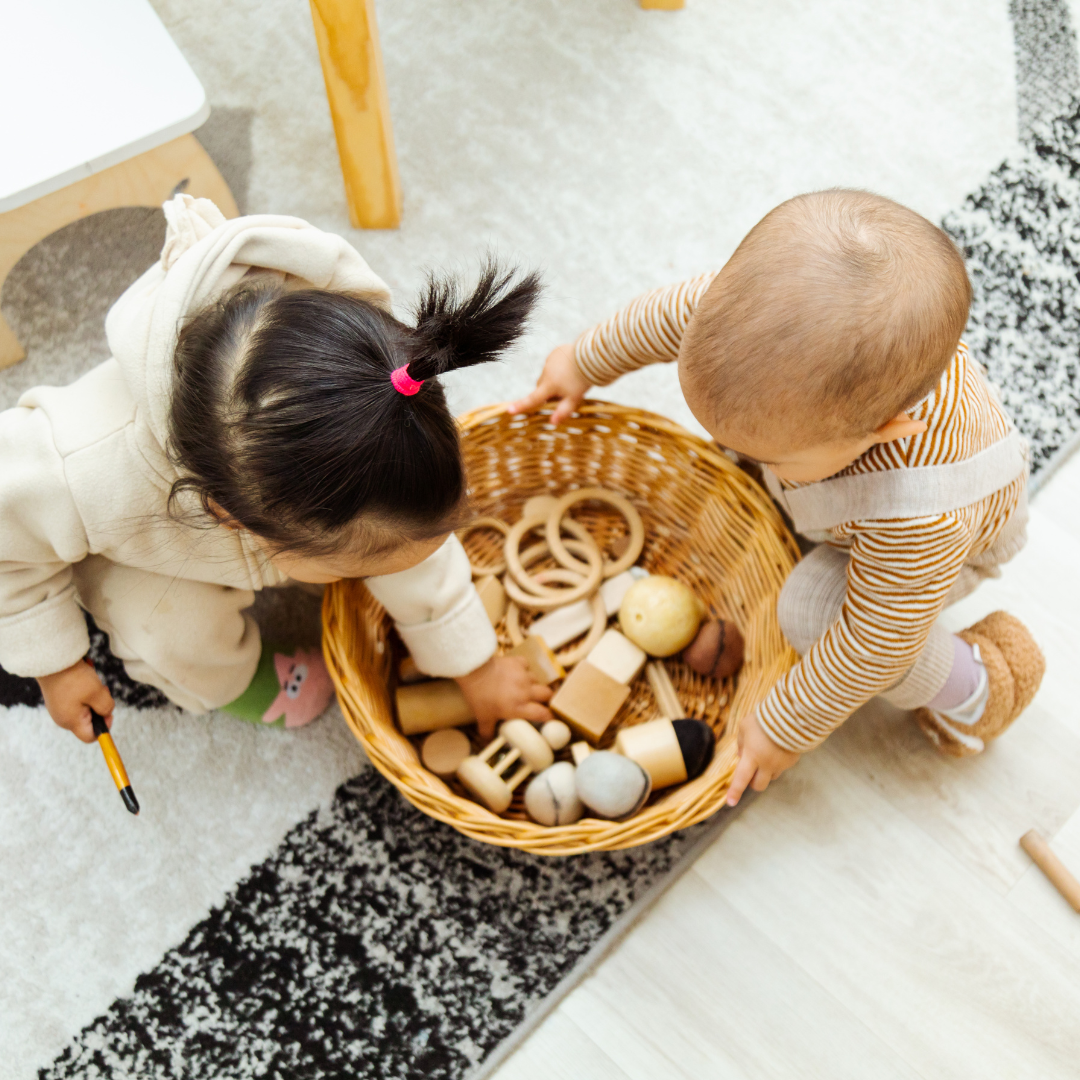
Myth #4: Inadequate Real-World Preparation
Life-Ready Skills: Montessori education is designed with the real world in mind, aiming to prepare children for real life. The skills learned in Montessori settings, such as independence, problem-solving, and collaboration, are directly applicable to real-life situations.

Myth #5: Elitism and Inaccessibility
Diverse and Inclusive: While some Montessori institutions are private and can be expensive, the core Montessori philosophy is inclusive and adaptable, serving diverse communities and offering various public and affordable options.
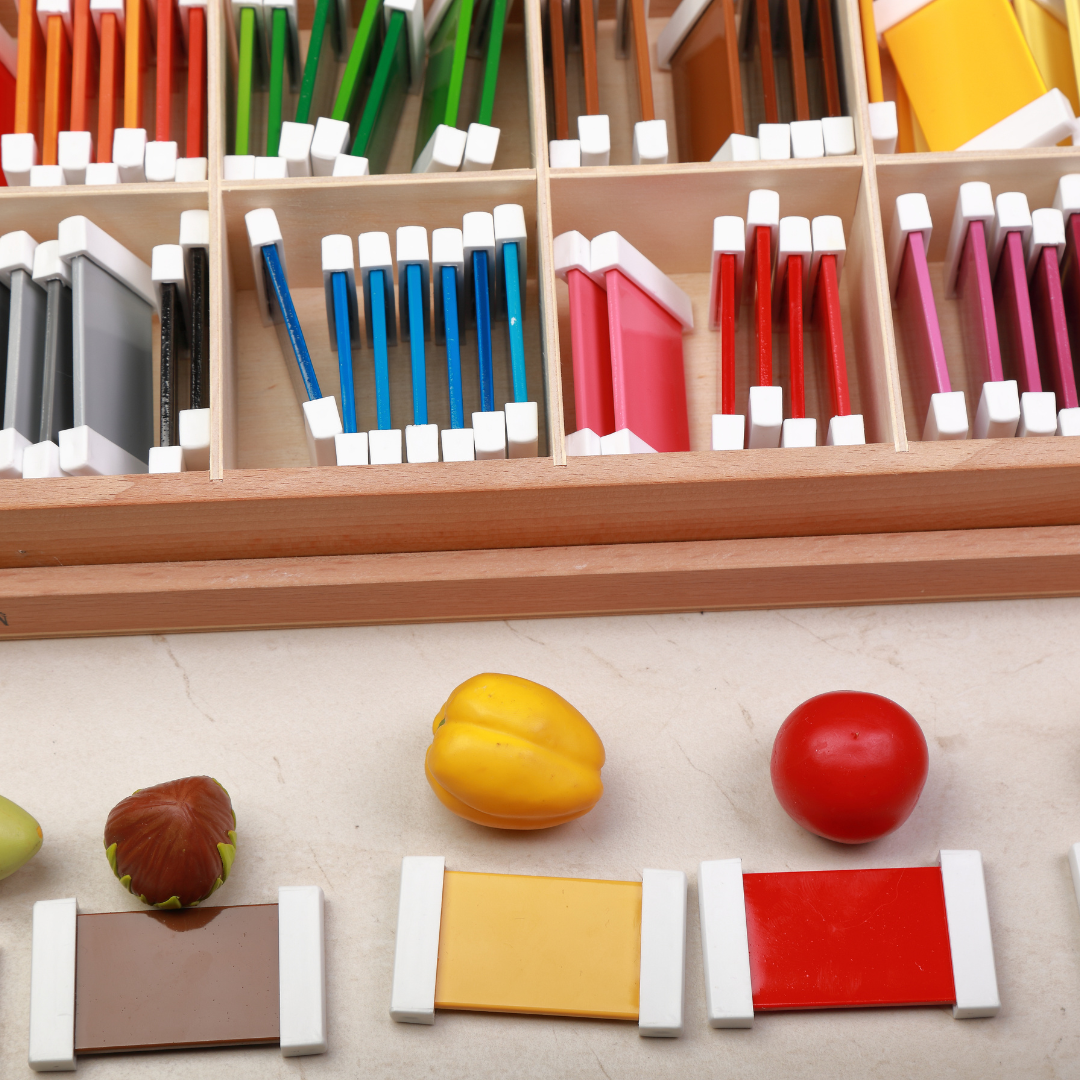
Myth #6: Religious Orientation
Secular Foundation: Montessori education is fundamentally secular, focusing on the child's development and learning rather than religious instruction, welcoming families from all backgrounds. We love that they have such an inclusive approach to learning.
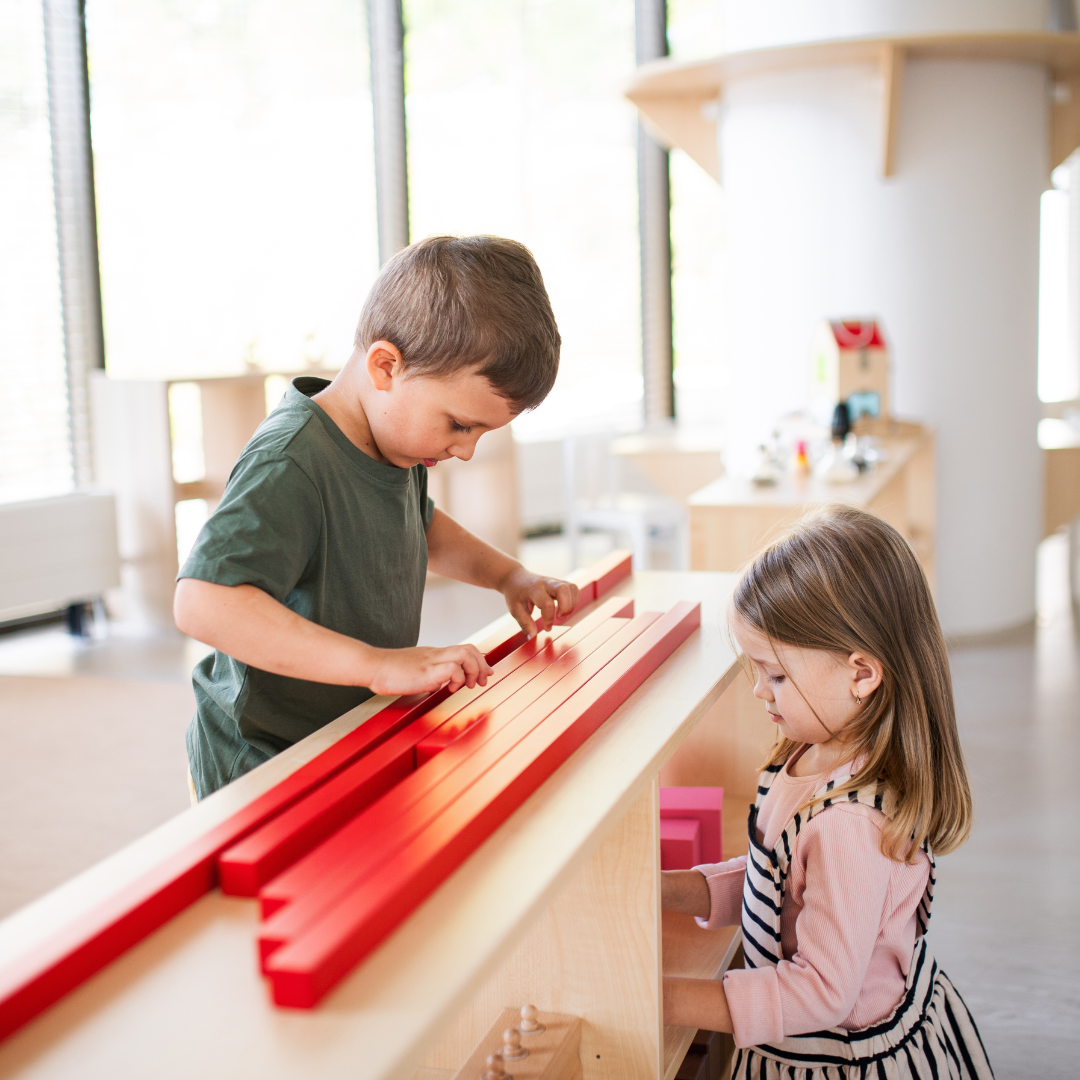
Myth #7: Difficulty Adapting to Traditional Settings
Adaptable Learners: Children transitioning from Montessori to traditional schools typically do well, thanks to their strong academic and social foundations. Montessori alumni often exhibit advanced problem-solving skills and adaptability.
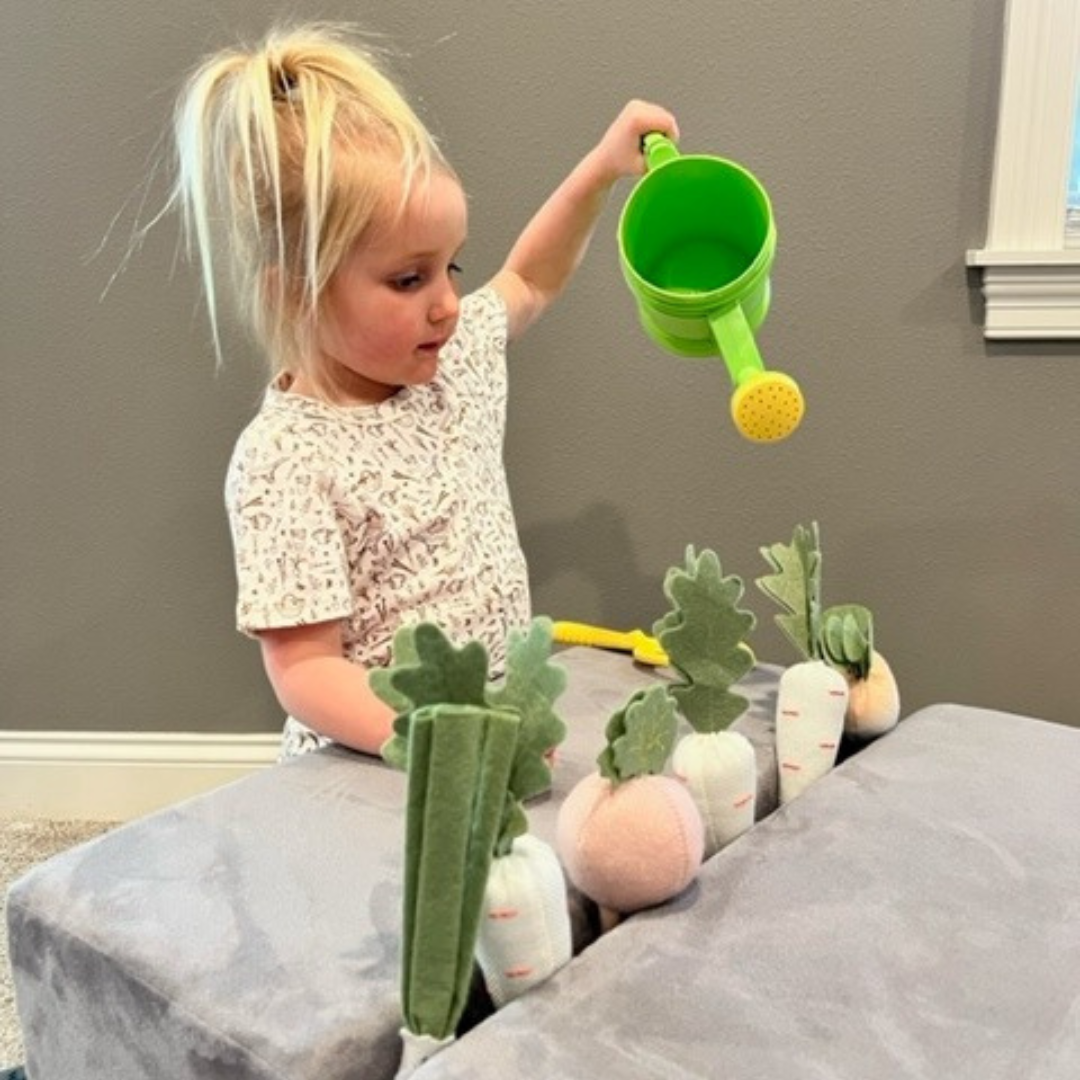
Myth #8: Only for Young Children
Comprehensive Approach: The Montessori method caters to a broad age range, from infancy to adolescence, challenging the misconception that it's only suitable for preschoolers.

Myth #9: Neglecting Social Development
Collaborative Learning: Far from ignoring social skills, Montessori education fosters socialization through group activities and community responsibilities, reflecting the natural dynamics of societal interaction.
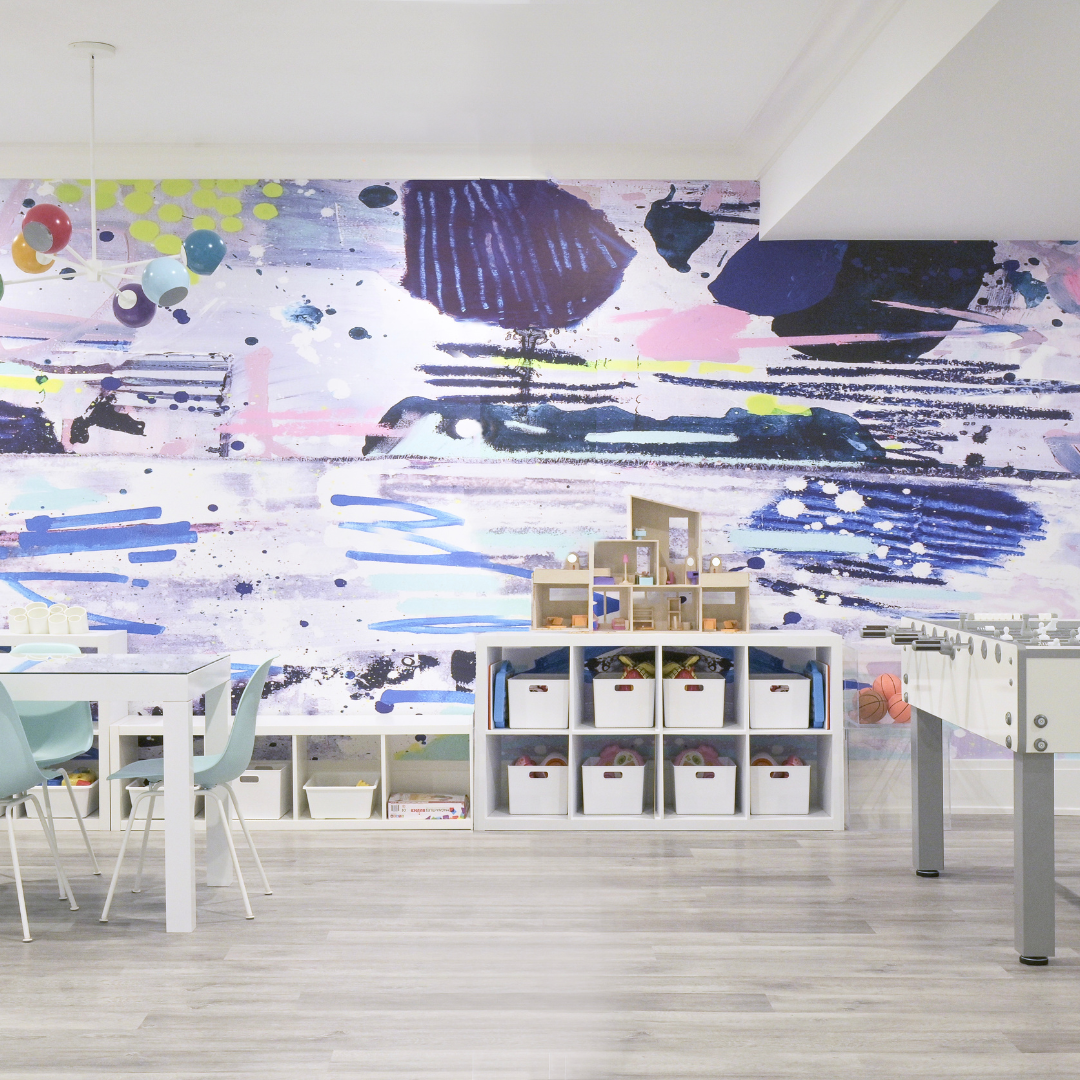
Myth #10: Limiting Creativity
Encouraging Imagination: Montessori education actually promotes creativity by providing children with opportunities to explore and express themselves through various mediums, debunking the myth that it stifles imaginative play.
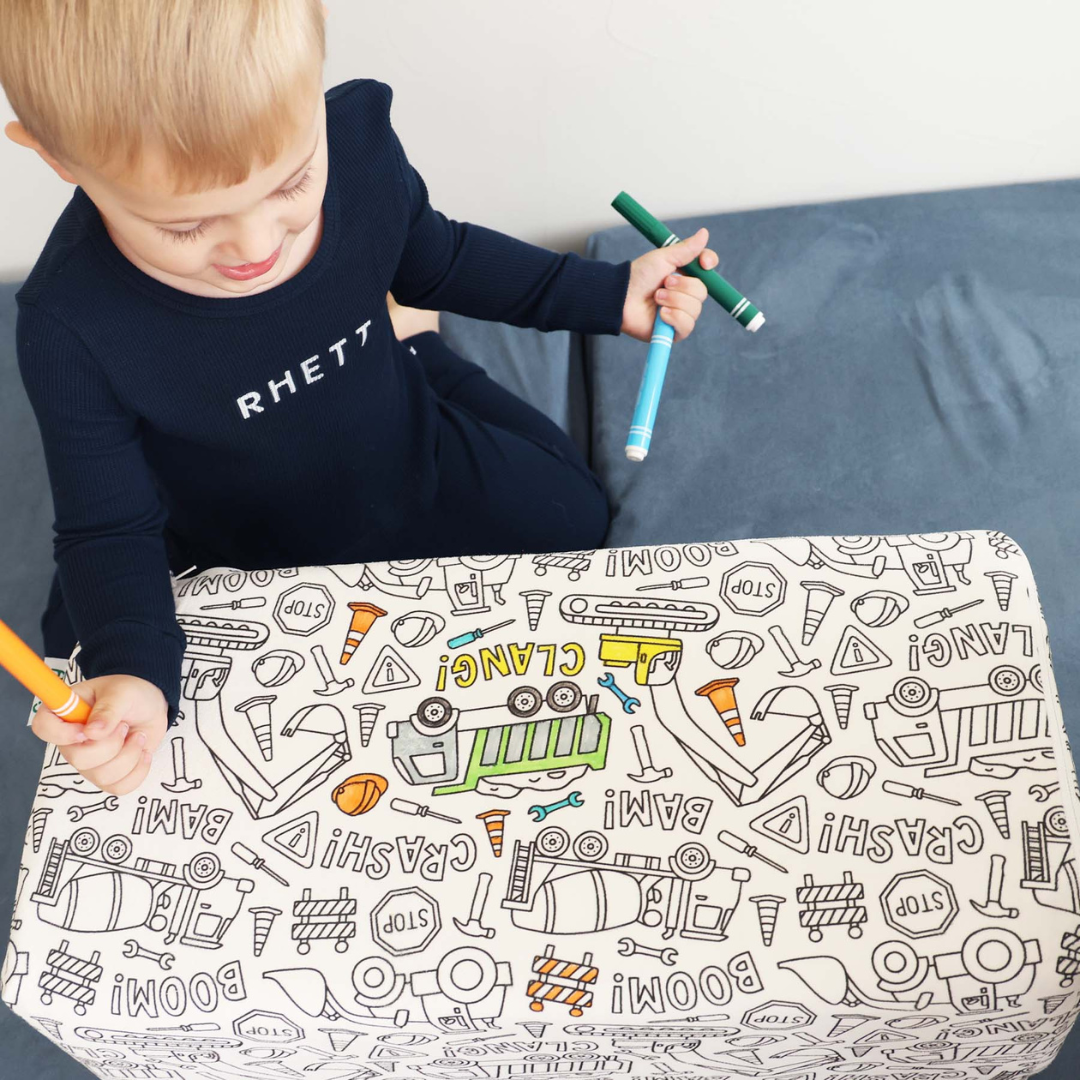
Myth #11: Exclusivity to Certain Children
Universal Approach: The Montessori method is designed for all children, regardless of their learning style or level. It supports the idea that every child can benefit from a Montessori education, tailored to meet their individual needs and potential.
Myth #12: Lack of Scientific Basis
Research-Backed Method: Contrary to the belief that Montessori education lacks scientific support, numerous studies validate its effectiveness. The approach is grounded in observation, experimentation, and the scientific method, continually evolving with new research findings.
In dispelling these myths, we shed light on the true essence of Montessori education: a holistic, child-centered approach that nurtures independent, thoughtful, and well-rounded individuals.
By understanding what Montessori truly represents, parents and educators can make informed decisions about the educational paths that will best support their children's development and lifelong learning.
Certainly! Here's an additional section incorporating the specified keywords:
Embracing Montessori: Key Insights for Modern Education
In the realm of modern education, misconceptions about the Montessori method persist, yet understanding its core principles can illuminate its relevance and effectiveness.
Let's delve deeper into how Montessori principles align with contemporary educational needs, addressing key terms often associated with this educational approach.
Personalized Learning and Child-Centered Approach
Child-Centered Growth: At the heart of Montessori education is the belief in a child-centered approach, where personalized learning paths allow children to explore subjects at their own pace.
This method respects individual differences and encourages students to take ownership of their education, fostering a lifelong love of learning.
Developmental Stages and Prepared Environment
Catering to Developmental Needs: Montessori education is designed around the natural developmental stages of children, providing a prepared environment that meets their evolving needs.
This environment is meticulously arranged with materials and activities that challenge and engage students, promoting growth and discovery at every stage.
Hands-On Learning and Sensorial Experiences
Engaging the Senses: Hands-on learning is a cornerstone of the Montessori method, emphasizing sensorial experiences that stimulate learning through doing.
This approach not only deepens understanding but also enhances memory retention and critical thinking skills.
Independence and Self-Discipline
Fostering Autonomy: Encouraging independence is a fundamental goal of Montessori education. Children are given the freedom to choose their activities within a structured framework, which promotes self-discipline and responsible decision-making.
This autonomy builds confidence and prepares children for future challenges.
Social Interaction and Community
Building Social Skills: Despite misconceptions, social interaction is integral to Montessori education. Multi-age classrooms and collaborative projects foster a sense of community and empathy among students.
Children learn to work together, respect one another, and develop strong interpersonal skills.
Academic Foundations and Real-World Skills
Solid Academic Grounding: While Montessori education emphasizes holistic development, it also provides a solid academic foundation.
Children engage with core subjects in meaningful ways, applying their knowledge to real-world situations. This balance ensures that students are well-prepared for future academic pursuits and life beyond the classroom.
Inclusivity and Diversity
Welcoming All Learners: Montessori schools strive for inclusivity, welcoming children from diverse backgrounds and with varying abilities. This diversity enriches the learning experience for all students, teaching them valuable lessons in acceptance and cultural awareness.
By addressing these key aspects, we can see how Montessori education aligns with modern educational values, offering a comprehensive approach that nurtures well-rounded, independent, and thoughtful individuals.
As we continue to challenge outdated misconceptions, we open the door to a more enlightened perspective on what education can and should be for the next generation.
Figgy: A Montessori-Inspired Innovation in Play
The Figgy play couch, with its unique design and versatile functionality, embodies the Montessori spirit in modern toy design. Let's explore how Figgy aligns with Montessori principles, providing a valuable tool for child development and learning.
Encouraging Child-Led Exploration
Fostering Natural Curiosity: Figgy, much like Montessori materials, is designed to stimulate children's natural curiosity and encourage exploration.
Its modular design allows children to construct, deconstruct, and redesign their play space according to their imagination and developmental stage, promoting an active, child-led learning process.
Supporting Sensory and Motor Development
Enhancing Physical Growth: The tactile nature of Figgy, combined with its various shapes and sizes, supports sensory and motor development.
Children engage in physical activities such as climbing, crawling, and balancing, which are crucial for their gross motor skills. This hands-on interaction mirrors the Montessori approach of learning through doing and experiencing.
Fostering Creativity and Imagination
Unleashing Creative Potential: In line with Montessori's emphasis on imagination, Figgy serves as a canvas for creativity. Whether transforming into a fort, a spaceship, or a quiet reading nook, Figgy encourages children to use their imagination to create new worlds, fostering creative thinking and problem-solving skills.
Promoting Independence and Self-Confidence
Building Autonomy: Figgy empowers children to make their own decisions about how they play, promoting independence and self-confidence.
This autonomy in play mirrors the Montessori philosophy of allowing children to choose their activities, thereby fostering a sense of ownership and self-motivation in their learning process.
Encouraging Social Interaction and Collaboration
Facilitating Cooperative Play: While individual exploration is vital, Figgy also promotes social interaction and collaboration among children. By working together to build structures or create scenarios, children learn valuable social skills such as communication, negotiation, and empathy, reflecting Montessori's focus on community and social development.
Integrating with Everyday Life and Learning
Blending Play with Practical Life Skills: Figgy's versatility extends beyond playtime; it can be integrated into daily life and learning activities, much like Montessori materials.
From serving as a tool for physical education to being a comfortable setting for quiet reading or learning, Figgy supports a holistic approach to child development, aligning with the Montessori method's aim to prepare children for life.
Figgy is not just a toy but a Montessori-inspired tool that supports the holistic development of children. By aligning with key Montessori principles, Figgy provides a playful, educational, and versatile environment that nurtures the physical, cognitive, and social growth of children, making it an invaluable addition to any child-centered learning space.
Rachel Neill is a mom of 6 and cofounder of Figgy. She is a big fan of montessori-inspired toys and learning for kids and families.
